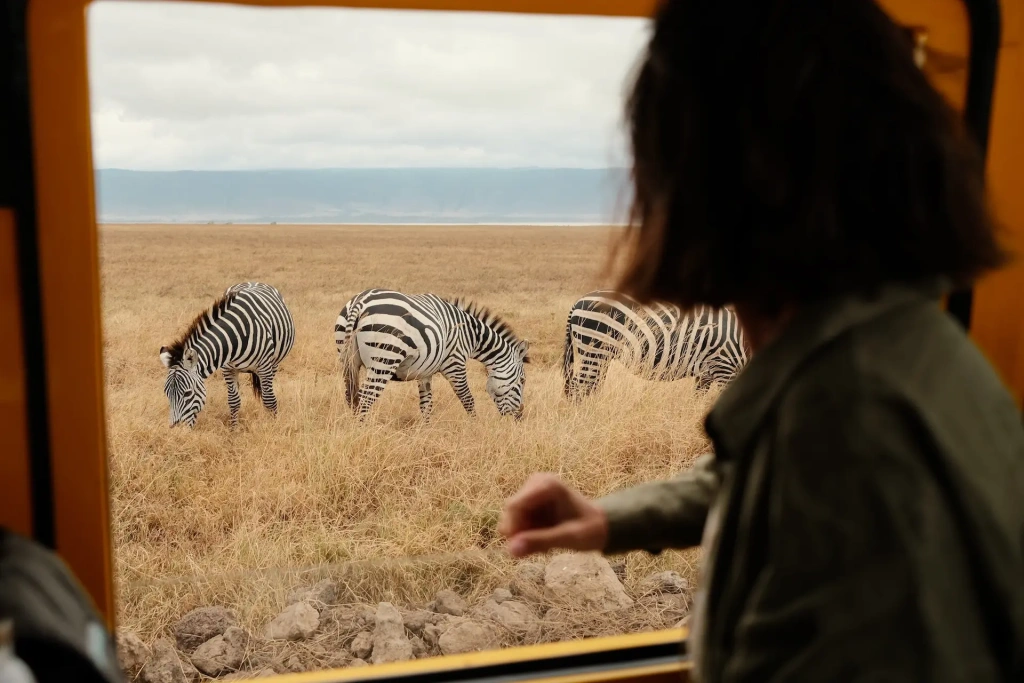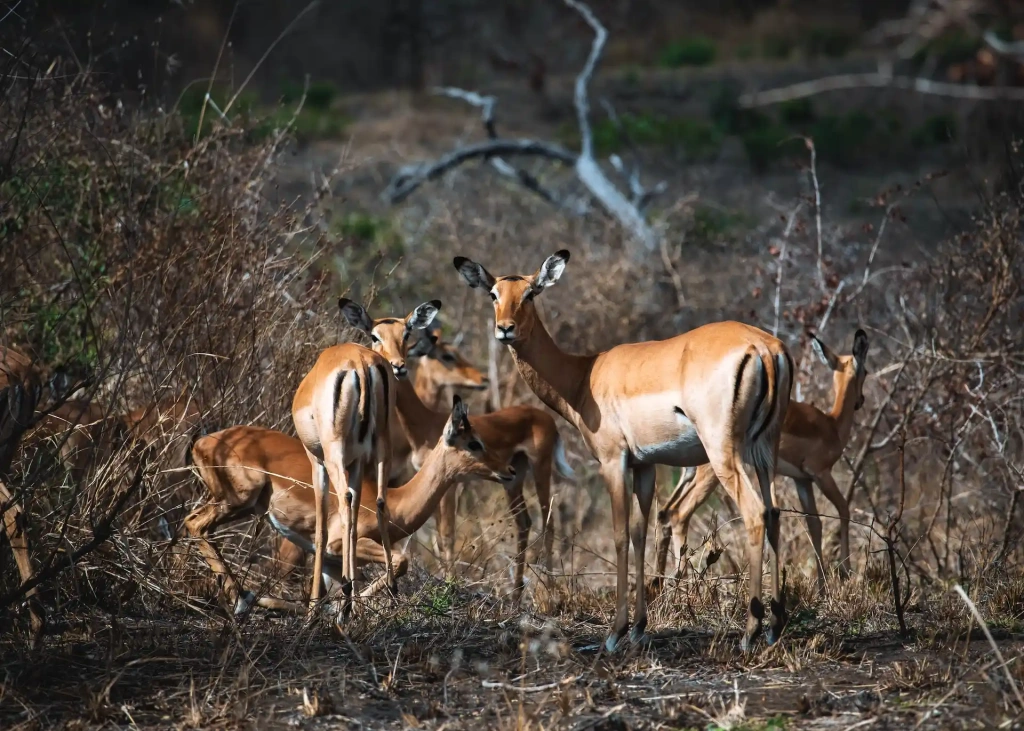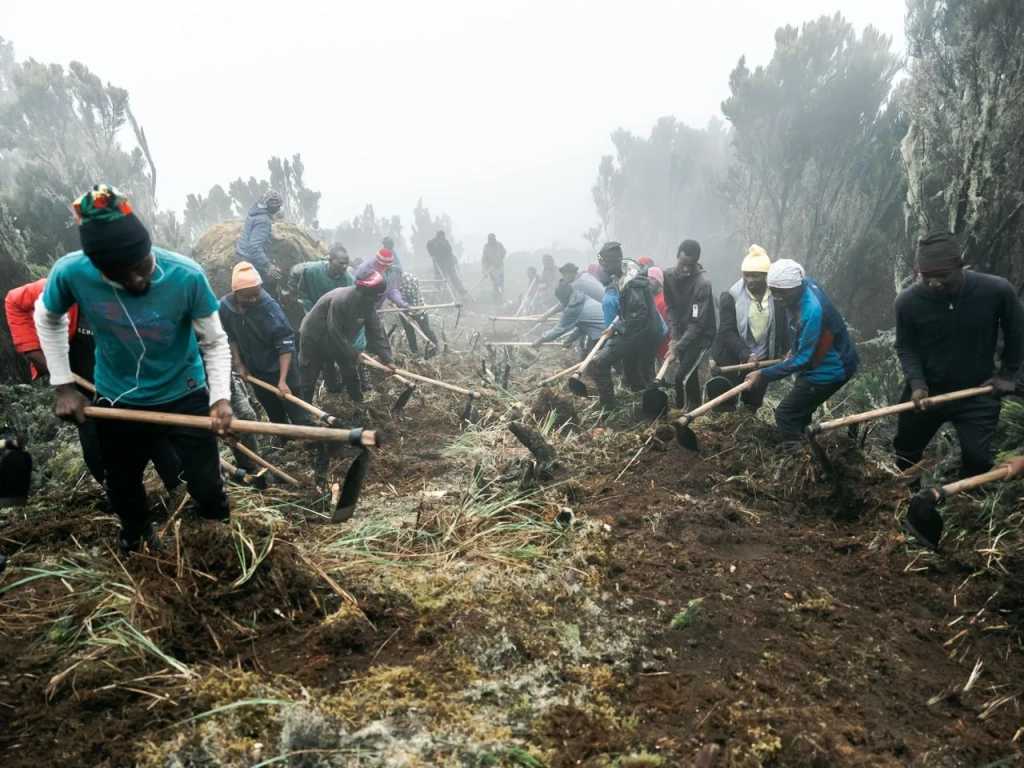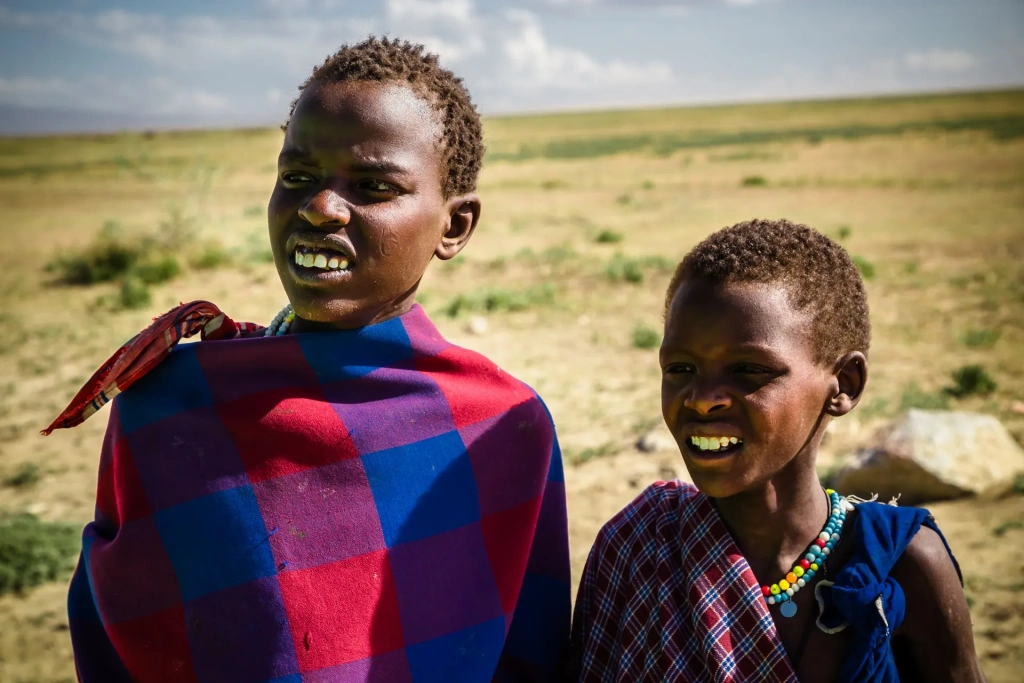A trip to Tanzania is a once-in-a-lifetime experience. You'll explore some of the most pristine national parks in the world, where wildlife roams freely, as it has for centuries. However, with these natural wonders come important responsibilities. To help preserve these areas for future generations, it’s crucial to be mindful of key sustainability issues.
In this article, we’ll highlight what not to do on your Tanzania adventure, providing you with practical tips to ensure your trip is enjoyable, environmentally friendly, and respectful of the wildlife and local communities.
Don’t encourage your guide to drive off-road
Our safari guides are strictly instructed not to drive off-road. While it may seem harmless to move a few meters closer to get a better view of a lion, this seemingly ‘small’ action can crush birds' nests or kill small animals like lizards, snakes, frogs, or tortoises. With nearly a million visitors visiting Tanzania’s national parks each year, the collective damage can be devastating.
When operated responsibly, the safari industry can minimize its environmental impact. However, even small mistakes can lead to serious consequences, particularly with the high volume of visitors. For instance, the Serengeti alone attracts over 300,000 visitors annually. To ensure these precious ecosystems remain intact, it’s important to follow key guidelines.
Don’t make loud sounds
If an animal isn’t paying attention to you, resist the urge to whistle, honk, or shout to get its attention. These sounds are unnatural in the savannah and can stress or disturb the animals. Furthermore, this kind of behavior is disruptive to other safari-goers who are trying to quietly enjoy the experience.
No flash photography
If you plan a night, early morning, or late evening safari, avoid using your camera’s flash. In fact, don’t use it in the national parks at all. Bright lights can be extremely harmful to animals, especially nocturnal species. Animals like bush babies and leopards rely on their night vision to hunt and navigate. Flashlights can temporarily blind them, disorienting them and making it harder for them to survive in their environment.
Don’t feed the animals
While it might seem harmless to give a monkey an apple, feeding animals causes more harm than you think. Human food can be dangerous for wildlife and encourages dependency on tourists. This often leads to aggressive behavior.
In Tarangire National Park, for example, monkeys have been known to snatch food from visitors, biting and scratching them in the process. In some cases, rangers have been forced to shoot overly aggressive animals. To prevent this, never feed the wildlife.
Don’t throw cigarette butts
Cigarette butts are a major cause of bushfires. Smokers are encouraged to collect their cigarette butts and dispose of them in the portable bins provided in our safari vehicles.
In 2020 and 2021, Kilimanjaro suffered serious bushfires. The reasons are still unclear, but there is a chance that smokers were at fault.
Each time Altezza Travel sent a large force of guides and porters to help the national park rangers put out the fires. Of all Kilimanjaro trek operators, our team was the largest. Luckily, the combined force curtailed the fires, though it was strong enough to destroy some tourist huts on one of the trails. You may read more in our report on the Kilimanjaro bushfires.
To make sure these situations do not happen again, in 2024 we donated six safety containers with critical firefighting equipment to Kilimanjaro National Park. Each container is stocked with chainsaws, hoes, shovels, and other gear that park personnel, guides, and porters can use to extinguish fires in the early stages. Our containers enable the park to quickly equip over 600 people.
Don’t litter
Ensure that any trash you have is handed to your guide. On safari, you may simply give it to a driver or dispose of the rubbish in a lodge.
When climbing Mt. Kilimanjaro, you’ll find special recycling bins, and our staff carries bags for waste collection. After each expedition, all trash is properly disposed of in a sustainable manner.
Don’t take anything from the parks
It may be tempting to take a bone, stone, or leaf as a memento from the park. However, removing anything from a national park disrupts the natural balance, especially when you consider the number of visitors doing the same. In addition to harming the ecosystem, it’s also illegal. Objects of natural origin are categorized as "forbidden souvenirs."
While on a beach vacation in Zanzibar, please resist the urge to collect seashells, starfish, or any marine life as souvenirs. With over a million people visiting Zanzibar annually, the impact on marine life can be immeasurable. If everyone takes a seashell, the entire ecosystem could be destroyed.
Also, Zanzibar's customs service treats these items just like other forms of wildlife, and attempting to take them home can result in serious issues at the airport.
For the sake of leaving the underwater world as it is, leave all marine wildlife where it belongs.
Don’t buy souvenirs from ivory
If you are ever offered anything made from elephant tusks, always refuse. All ivory is strictly prohibited in Tanzania, and severe consequences await anyone caught with it at the airport.
Avoid certain hotels with wildlife on site
Some businesses in Tanzania falsely present themselves as wildlife advocates by keeping wild animals on their premises under the guise of rehabilitation. They often allow visitors to pet the animals and take pictures, but this is deceptive. In reality, there isn't a single certified private wildlife rehabilitation facility in Tanzania—all legitimate operations are managed by the Tanzania Wildlife Research Institute. Such hotels exploit wildlife to attract tourists, and when the animals grow too large, they are often sent to zoos or hunting reserves.
To avoid potential legal issues, we do not publish a list of these establishments. However, we never include them in our programs. If a client requests a stay at one of these places, we explain our reasons for not supporting them and decline to make a booking.
Don’t visit schools, orphanages, or other places where you’re encouraged to meet children
We understand that many travelers to Africa strongly desire to help children from underprivileged families. However, we urge you to avoid visiting places with direct contact with children, such as places where tourists are encouraged to take pictures and the children are made to sing, dance, or recite poems. The establishment owners often stage these experiences and exploit the children to attract donations. While the performances may seem heartwarming, they usually benefit the owners rather than the children themselves.
There is also no need to bring school supplies like pencils or crayons—these are readily available in Tanzania. If you genuinely want to help, we recommend contacting the director of a legitimate school to ask what the students need. Typically, the requests are for items like desks, blackboards, or printers—less obvious but more costly necessities. If you wish, we can connect you with school directors in areas outside the usual tourist routes, ensuring your contributions make a meaningful impact.
Don’t volunteer for a fee
Don’t take up volunteering opportunities that require a fee, such as teaching English at private schools. In these cases, the focus is often on the money volunteers pay rather than the educational benefit. The children are kept in these facilities purely to attract well-meaning visitors and ensure a steady flow of payments. Unfortunately, the actual educational needs of the children are neglected.
These so-called ‘schools’ accept anyone who expresses an interest in volunteering, without regard for their qualifications, skills, or experience. The primary goal is to collect a fee, and in doing so, they expose the children to whoever is willing to pay. Before jumping at these opportunities, consider whether you would find it acceptable for a random stranger to teach children in your own country. Volunteering should be about making a genuine difference, not just filling a slot for the sake of profit.
Don’t take photos of individuals without permission
If you come across a Maasai warrior in traditional dress and want to capture the moment, always ask for permission first. Never photograph children without parental consent. While Tanzanian children, like kids everywhere, may be curious and seem willing, they often don't fully understand what's happening or what they're agreeing to. Respect their privacy and dignity.
Avoid dressing inappropriately
On mainland Tanzania, revealing clothes may raise a few eyebrows but generally won’t cause much trouble. However, in Zanzibar, with its predominantly Muslim population, dressing modestly is more important, especially in places like Stone Town. While you’ll be fine in beachwear along the coast, it’s best to dress more conservatively during city trips. Show respect for local customs by avoiding overly revealing attire.
Support local restaurants
When looking for a place to eat, consider choosing local restaurants. By doing so, you’ll directly support the local economy and ensure that tourism benefits reach Tanzanian communities.
We have recommendations for excellent local eateries—just ask your travel manager for suggestions.
Report illegal behavior
If you witness anything concerning during your trip, such as child exploitation, harassment, or any other illegal activity, please inform your guide immediately. They will pass the information on to us, and we will ensure it reaches the appropriate authorities. Your vigilance helps protect the community and its most vulnerable members.
All content on Altezza Travel is created with expert insights and thorough research, in line with our Editorial Policy.
Want to know more about Tanzania adventures?
Get in touch with our team! We've explored all the top destinations across Tanzania. Our Kilimanjaro-based adventure consultants are ready to share tips and help you plan your unforgettable journey.




















